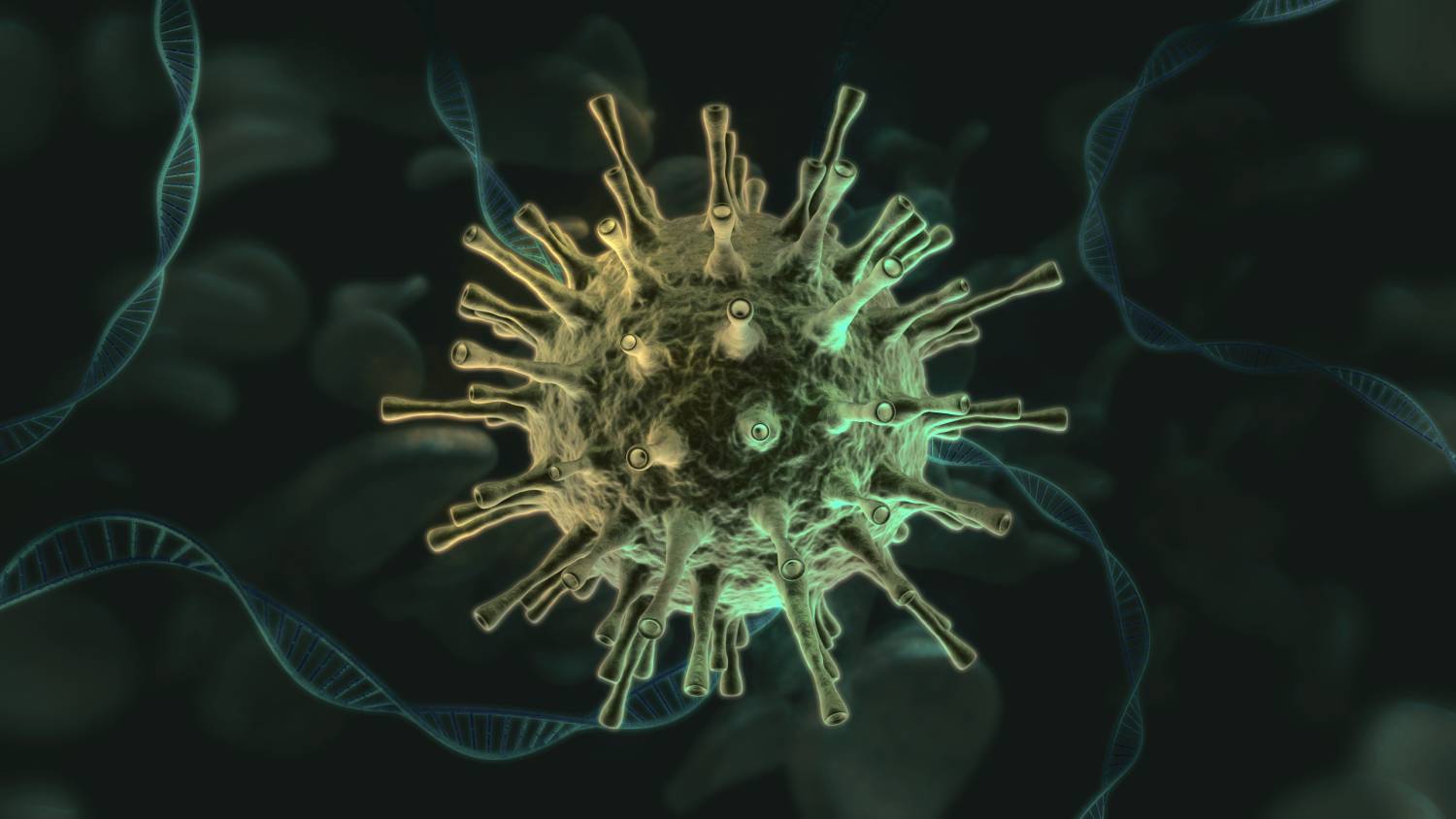Cross-Variant Immunity From COVID-19 Vaccines and Prior Infection
April 19, 2021
Despite the expeditious development of effective COVID-19 vaccines, a common concern is that SARS-CoV-2 variants may prolong the pandemic. Prominent variants have been detected in South Africa (variant B.1.351), Great Britain (B.1.1.7), and Brazil (B.1.1.248) [1]. Each variant each carries several mutations, many of which affect the SARS-CoV-2 spike protein [2]. Vaccines target the SARS-CoV-2 spike protein in their neutralization response, as do the immune systems of previously infected individuals [3]. When variants contain reconfigured spike proteins, neutralization can be less effective, and infection can be more likely to occur. As a result, a major question is whether current vaccines provide cross-variant immunity against COVID-19.
One variant of interest is B.1.1.7, which contains eight amino acid mutations in its spike protein, including N501Y [4]. The N501Y mutation is associated with greater transmission rates and, potentially, augmented pathogenicity [4]. A trial analyzing 499 people who received the University of Oxford/AstraZeneca vaccine found that neutralizing antibody titer against B.1.1.7 was reduced nine-fold compared to wild-type virus [4]. However, researchers determined that this did not affect vaccine efficacy, as participants were not more susceptible to infection from B.1.1.7, a result consistent with other B.1.1.7 studies, suggesting some level of cross-variant immunity [4].
As with B.1.1.7, multiple other variants have been found to reduce the efficacy of neutralization processes at diminished but significant rates. Various studies identified B.1.351 as somewhat to fully resistant to neutralizing antibodies administered by multiple vaccines [5]. Meanwhile, other US-authorized vaccines can prevent COVID-19 infection in people exposed to the B.1.351 variant, but they are less successful at preventing B.1.351 infection than variants with the common D614G mutations [5]. Similar results have been found in cross-neutralization studies examining other prominent global variants, such as P.1 and P.2 [2]. A broader study on the Pfizer-BioNTech and Moderna vaccines found that variants with N501Y, E484K, or K417N/5484K/N501 mutations reduced immune response by a small but significant amount and diminished or completely negated neutralization by 14 of the 17 most potent monoclonal antibodies that they tested [6]. Additionally, the N439K mutation demonstrated immune-evasive tendencies [7]. While current treatments may suffice in preventing COVID-19, the growing number and danger of SARS-CoV-2 variants suggest that updated treatment options may be required in the future [6].
Just like vaccines, the immune system response generated by a prior infection can prevent COVID-19 contraction [8]. Unfortunately, this response may be less effective in generating cross-variant immunity against certain strains. One research study examined the CD8+ T-cell responses of 30 patients who had contracted COVID-19 in the past [1]. The goal was to examine whether their bodies’ T-cells would successfully defend against the newer B.1.135, B.1.1.7, and B.1.1.248 variants [1]. The researchers found that T-cells remained effective against the three principal SARS-CoV-2 variants [1]. However, effective T-cell and antibody reactions are both necessary to combat infection, so it is unclear whether convalescent individuals are safe from reinfection by variants [1]. In some cases, neutralization antibodies that are successful against older SARS-CoV-2 variants have shown weakened or loss of effectiveness against newer variants [3]. Accordingly, individuals without contraindications to the vaccines should seek vaccination, regardless of whether they have previously contracted COVID-19 or not [3].
The mounting ubiquity of immune-evasive SARS-CoV-2 variants suggests that the COVID-19 crisis is not yet over. To control the disease as best as possible, all individuals should be vaccinated while researchers strive to create more comprehensive treatments [6]. By taking these steps, viral evolution can be slowed and the pandemic can be better controlled.
References
[1] A. D. Redd et al., “CD8+ T cell responses in COVID-19 convalescent individuals target conserved epitopes from multiple prominent SARS-CoV-2 circulating variants,” Open Forum Infectious Diseases, March 2021. [Online]. Available: https://doi.org/10.1093/ofid/ofab143.
[2] W. F. Garcia-Beltran et al., “Multiple SARS-CoV-2 variants escape neutralization by vaccine-induced humoral immunity,” Cell, vol. 110, p. 1-10, April 2021. [Online]. Available: https://doi.org/10.1016/j.cell.2021.03.036.
[3] L. Stamatamos et al., “mRNA vaccination boosts cross-variant neutralizing antibodies elicited by SARS-CoV-2 infection,” Science, p. 1-13, March 2021. [Online]. Available: https://doi.org/10.1126/science.abg9175.
[4] D. M. Altmann, R. J. Boyton, and R. Beale, “Immunity to SARS-CoV-2 variants of concern,” Science, vol. 371, no. 6534, p. 1103-1104, March 2021. [Online]. Available: https://doi.org/10.1126/science.abg7404.
[5] J. R. Mascola, B. S. Graham, and A. S. Fauci, “SARS-CoV-2 Viral Variants-Tackling a Moving Target,” JAMA, vol. 325, no. 13, p. 1261-1262, February 2021. [Online]. Available: https://doi.org/10.1001/jama.2021.2088.
[6] Z. Wang et al., “mRNA vaccine-elicited antibodies to SARS-CoV-2 and circulating variants,” Nature, February 2021. [Online]. Available: https://doi.org/10.1038/s41586-021-03324-6.
[7] E. C. Thomson et al., “Circulating SARS-CoV-2 spike N439K variants maintain fitness while evading antibody-mediated immunity,” Cell, vol. 184, no. 5, p. 1171-1187, March 2021. [Online]. Available: https://doi.org/10.1016/j.cell.2021.01.037.
[8] A. Iwasaki, “What refinfections mean for COVID-19,” Science, vol. 21, no. 1, p. 3-5, March 2021. [Online]. Available: https://doi.org/10.1016/S1473-3099(20)30783-0.